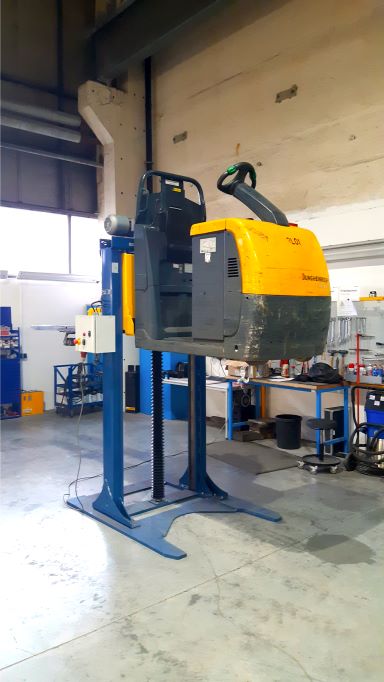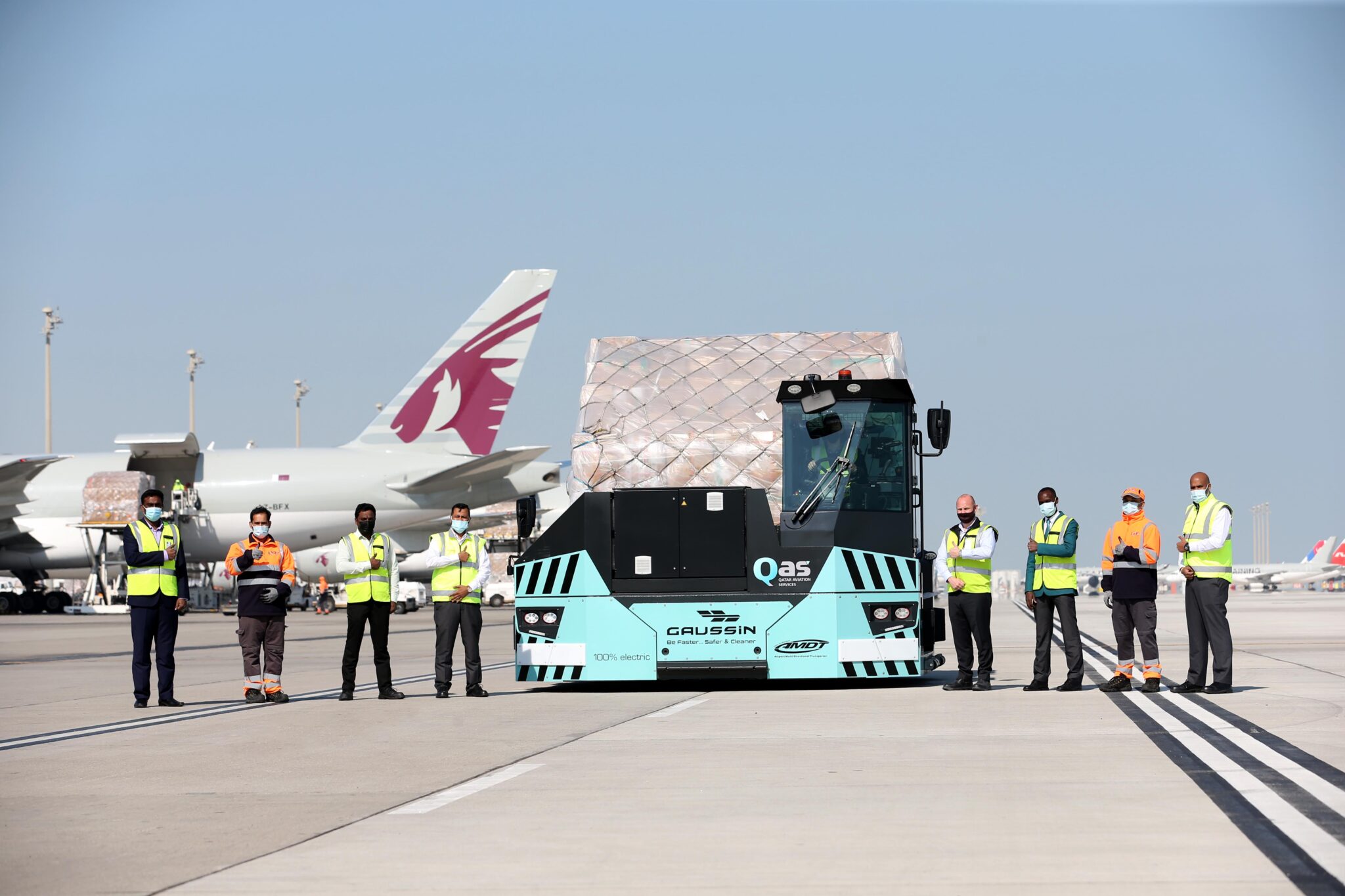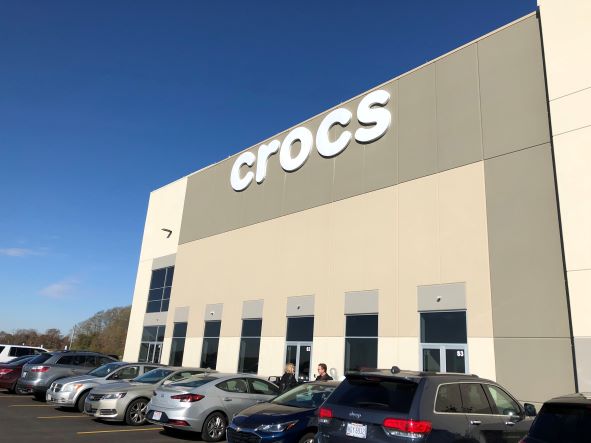The beverage industry is undergoing a prolonged period of significant change that is making warehouse automation a highly attractive option for companies of all sizes across the sector, says Paul Freeman, Head of Logistics Solutions, Toyota Material Handling
With increasingly fickle consumers demanding new brands and flavours all the time, drink manufacturers are continuously looking to add to their product offerings. As a result, across the beverage industry, SKU numbers have proliferated noticeably in recent years and this has left many manufacturers and distributors struggling to find the space needed to store growing ranges within their existing warehouses and distribution centres.
The need to make the most of every available square foot of storage capacity and move more inventory around the building with optimum efficiency has made the idea of automating key intralogistics functions such as the transportation of loads and the retrieval and put-away of pallets within racking schemes, more and more attractive to beverage distributors and manufacturers alike.
And the case for automation has been further strengthened by the fact that the additional labour that would traditionally have been recruited to safely and cost-effectively handle the rising stock levels within beverage warehouses and DCs, is becoming difficult and costly to attract. Indeed, a recent survey found that nearly half of beverage distributors consider the shrinking labour pool to be the biggest threat to the smooth running of their supply chains.
Of course, like other sectors, the beverage industry is also dealing with the fall-out from the pandemic and the surge in e-commerce sales. Consumers have become used to buying drinks – particularly alcohol - online and having their orders delivered the same day, but this type of order fulfilment operation requires totally different storage and picking strategies to those deployed for fulfilling replenishment stock orders for supermarkets and other retail outlets.
Space constraints
The space constraints generated by the need to hold more SKUs and the shorter pick times and quicker throughput rates needed to meet the delivery expectations of internet shoppers added to the fact that the labour crisis is leaving companies with little alternative but to hire inexperienced warehouse personnel, have heightened the risk of the kind of accidents and damage to equipment, building infrastructure and stock – not to mention the injuries to workers.
So, both soft and alcoholic drink manufacturers and distributors are under growing pressure to optimise storage solutions to make the most of the people and space they have available. Increasingly, this means deploying some form of automation.
Automating those aspects of the warehousing operation that follow a predictable pattern makes a lot of sense and relatively recent developments in automation technology have seen the emergence of flexible and scalable products that deliver a notably faster return-on-investment compared to the type of often costly fixed assets that, at one time, were considered central to any automated warehouse project.
These days adopting automation no longer requires every aspect of the warehouse or distribution centre to be automated – just the parts of it that will benefit most and, as a result, this sophisticated technology is within financial reach of SMEs as well as the biggest players.
So, introducing warehouse automation has become a multi-phased project and by applying a systematic approach to identify the most common intralogistics functions and aspects of the material flow process, systems can be designed that fit the user’s needs and drive productivity, efficiency and lower overall supply chain costs.
Improved safety
Despite the noteworthy efforts over many years of such respected organisations as the Fork Lift Truck Association (FLTA), the British Industrial Truck Association (BITA) and the United Kingdom Warehousing Association (UKWA) to shine a spotlight on the often devastating consequences of lift truck accidents, the number of workplace accidents involving forklifts remains obstinately high.
Indeed, according to the Health and Safety Executive, a worker in the transport and distribution sector suffers a serious injury as a result of an incident involving a lift truck every single day of the year.
Forklifts colliding when entering or leaving an aisle, trucks overturning and machines colliding with pedestrians within a warehouse or other industrial site, are among the most common type of accidents recorded.
In the overwhelming majority of cases, responsibility for the mishap is initially deemed to lie with the truck operator. And, in a beverage warehouse where palletised loads of glass bottles are often handled, the risk to forklift operators and pedestrian personnel of serious injury from, for example, a dropped pallet of wine cases, is significant.
Obviously any possibility of driver-error is removed by the introduction of automation, such as driverless forklift technology.
Automated driverless forklift trucks follow the route around the warehouse that they have been programmed to follow, so the likelihood of an automated truck damaging either the warehouse building, the storage system within it or the load being carried is virtually zero. This built-in safety functionality also means that the risk of the equipment causing injury to warehouse personnel working in the same area as an automated forklift is minimal.
Cost saving
A recent study by Logistics UK showed that in 2019, 79,000 EU nationals left the UK logistics industry – around 7,000 of whom were lift truck drivers.
The exodus is thought to have gathered pace over the past 18 months and, with the Covid crisis adding high rates of staff absenteeism to the mix, the number of qualified lift truck operators in the UK is estimated to be down by some 25 per cent on the figure needed to run the nation’s forklift fleet.
The widening gap between supply and demand, means that warehouse workers’ wages are rising. In November 2020 the average warehouse worker’s salary advertised on online job-search engine Adzuna was £19,995 per annum. By November 2021 the remuneration for order pickers was up 8 per cent year-on-year. Over the same period, vacancies for warehouse jobs were up 143%.
Given that human labour is already one of the most significant costs associated with running a warehouse the handsome financial packages that are now required to tempt warehouse staff are prompting more and more logistics companies to seek new ways of providing the same service levels with less staff.
For many, this means switching to automation. AGV’s – such as Toyota’s Autopilot series – offer several benefits in addition to delivering lower labour costs, including reductions in product and building infrastructure damage and increased productivity. These notable advantages bring a rapid return on investment. Toyota’s automated forklifts (AGV’s), for example, deliver a typical ROI period of between 12 and 36 months.
Production efficiency
With manual handling technology that relies, to a large extent, on the ability of people to perform their tasks safely, efficiently and without mishap, problems with inventory tracking, picking, receiving and put-away can interrupt the flow of goods through a warehouse with alarming – and costly – regularity. But with automated handling systems goods reach their destination within the store on time every time.
Of course, manual – and often repetitive – tasks use up staff resources and effort and ensuring they are completed properly can waste a lot of valuable management time. As a result, focus can be lost and key tasks may fail to receive the attention that they should. This is when mistakes happen. And, when mistakes creep in at any stage of the intralogistics process there is a real likelihood that the entire process will suffer, to the obvious detriment of the business.
Automating repetitive manual warehouse functions gives management the comfort of knowing that the flow of materials through the store will continue uninterrupted, leaving them free to focus on other matters that require their expertise.
In addition to reliable production flows, automation also reduces the kind of damage to goods that is unavoidable with any process involving human labour; delivers greater order picking accuracy; makes more efficient use of the available storage space; and, cuts the (rising) cost of employing increasingly hard to find workers.
Toyota Material Handling has successfully delivered more than 270 automated projects featuring over 1,000 automated guided vehicles across Europe. We work with our customers to determine the specific challenges they face and tackle them one step at a time. Breaking the process down into small modules gives clients essential scalability and means that, if they wish to, customers can partially automate their processes while retaining the option to introduce more automated technology as future demands change.











